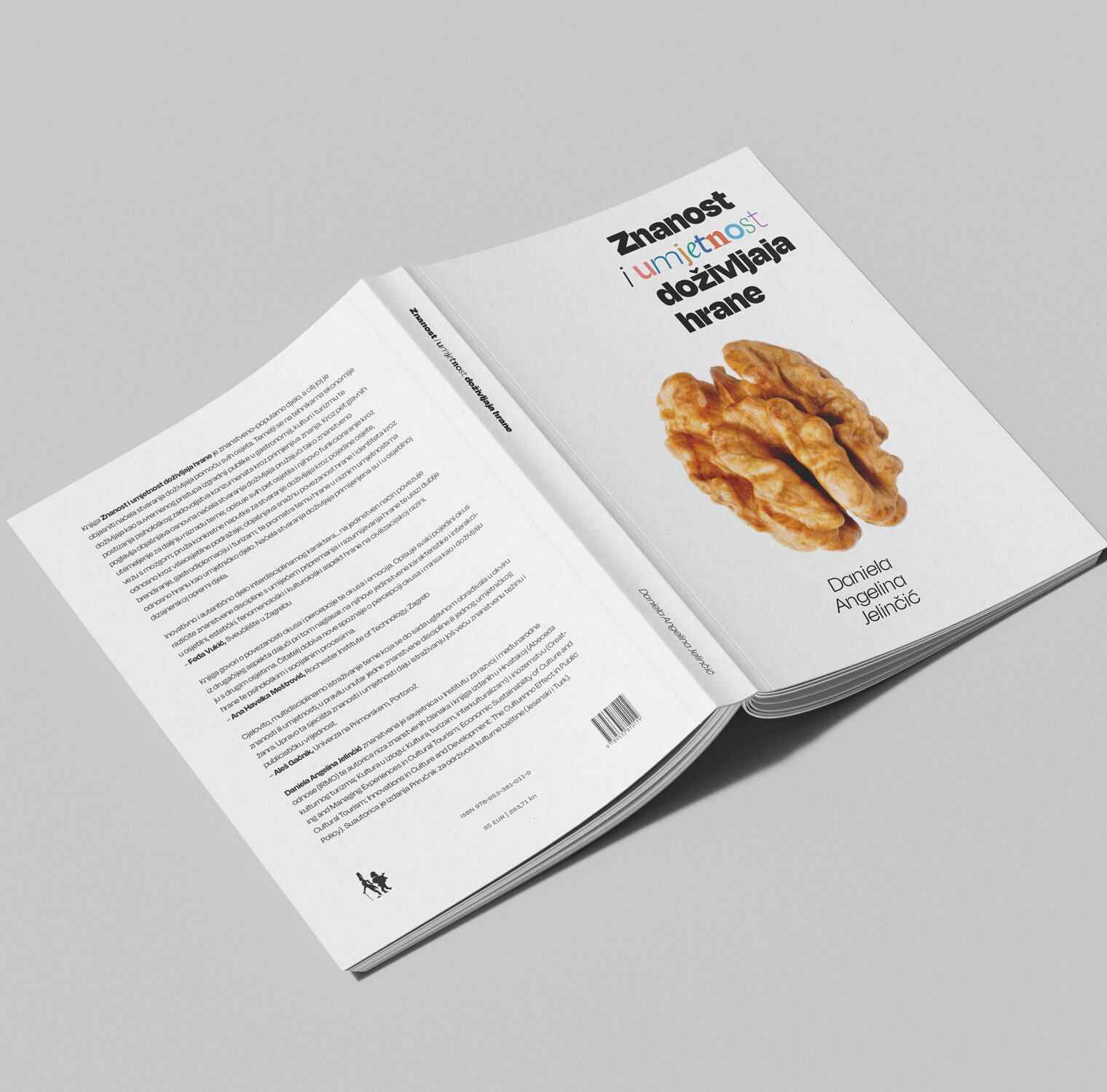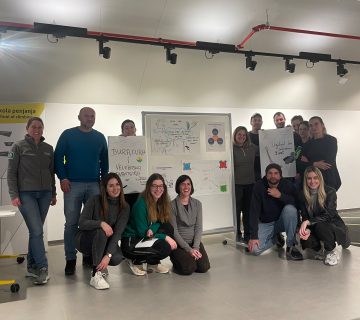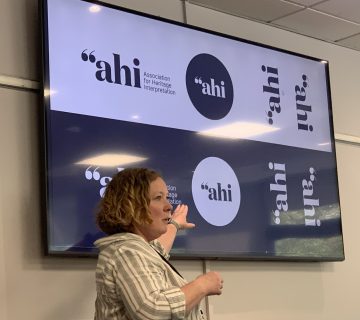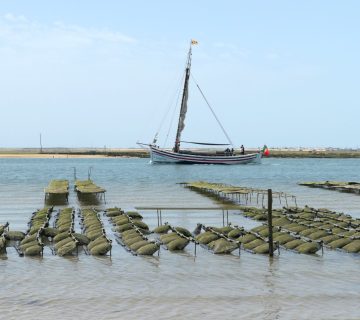This new book (in Croatian: Znanost i umjetnost doživljaja hrane) satisfies a hunger to highlight gastronomic heritage interpretation techniques.
This new book will surely pique your interest and ignite your passion for the science of food! It is with great pleasure that we announce the release of a cutting-edge book that promises to revolutionise the way we approach food. The Art and Science of Food Experience is published in Croatian (Znanost i umjetnost doživljaja hrane) and is intended to support those working in the catering and hospitality sector, culture and tourism, but will also be useful for artists, heritage interpreters, gourmet connoisseurs and foodies. It will be of great use to students of culture, arts and tourism fields, marketing, and through some topics to students of psychology, ethnology, and political science. Its content is also applicable in everyday life and suitable for anyone who wants to live a more beautiful and pleasant life.
The goal of the book is to explain the principles of gastronomy experience design by involving all five senses: sight, hearing, smell, taste, touch. The book is based on the experience economy techniques as a modern approach to gastronomy audience building that enables designing experiences that psychologically satisfy consumers. In addition to the introduction, the book contains five chapters with subchapters. In the first chapter, entitled Food in the Experience Economy, the author explains the basic principles of experience design. In the second chapter, Brain-Food Connection, all five senses and their connections with the brain are described. You may be surprised by the complexity of those connections. The third chapter, entitled Designing a Gastronomic Experience, provides specific instructions for creating experiences through multisensory stimuli. The fourth chapter, Food and Identity, emphasises strong connections between food and identity, which is elaborated through the following sub-themes: food as a brand, gastrodiplomacy, and food and tourism. The final, fifth chapter, presents the topic of Food and Art, through a double prism: food in art and food as a work of art.
The principles explained in the book can be easily applied in heritage interpretation; the connection of the brain with the use of colour, form, symmetry rhythm, melody etc. as subliminal tools are indispensable elements of food but also heritage interpretation. Thus, whether one will use orange colour instead of green, steady rhythm and major key for the background music instead of syncopated rhythm and minor key melody can make a whole lot of difference! Your consumers/visitors may have totally different experiences as well as perceived or induced emotions due to such stimuli. Therefore, do not underestimate these subliminal tools as the brain reacts to them, even though our consumers/visitors may not be consciously aware of them.
The author practices what she preaches, because the book itself is designed as an experience product that engages all the senses. Although the sense of sight is the primary sense used when consuming this book (through pictures and aesthetic design of the book), other senses are close to follow. The sense of touch is activated starting from the cover of the book that engages the reader with tactile design and symbolic association of walnuts as good food for the brain; sense of smell and taste are engaged through the attached recipes; while hearing is activated by music and videos accessible through QR codes that enable the download of music and video clips.
The pages of this book are brimming with actions, creative ideas, and profound insights that will revolutionise your approach to gastronomy and elevate the experiences you create for your consumers or yourself.
Title: Znanost i umjetnost doživljaja hrane/ The Art and Science of Food Experience
Author: Daniela Angelina Jelinčić
Publisher: Jesenski i Turk, Zagreb, Croatia
At the moment, the book is only available in Croatian.
You can order your copy here: https://www.superknjizara.hr/hr/znanost-i-umjetnost-dozivljaja-hrane-2023-daniela-angelina-jelincic
Marta Šveb Dragija is a research assistant from the Institute for Development and International Relations (IRMO), Zagreb, Croatia. Her main research interest is focused on an interdisciplinary, socio-psychological approach to the study of experience design in cultural tourism. Marta can be contacted at: marta.sveb@irmo.hr.
To cite this article: Šveb Dragija, Marta (2023) ‘New publication: The Art and Science of Food Experience ‘in Interpret Europe Newsletter 3-2023, pg.21.
Available online: https://interpret-europe.net/wp-content/uploads/2023/10/PDF-Newsletter-2023_3-autumn.pdf




